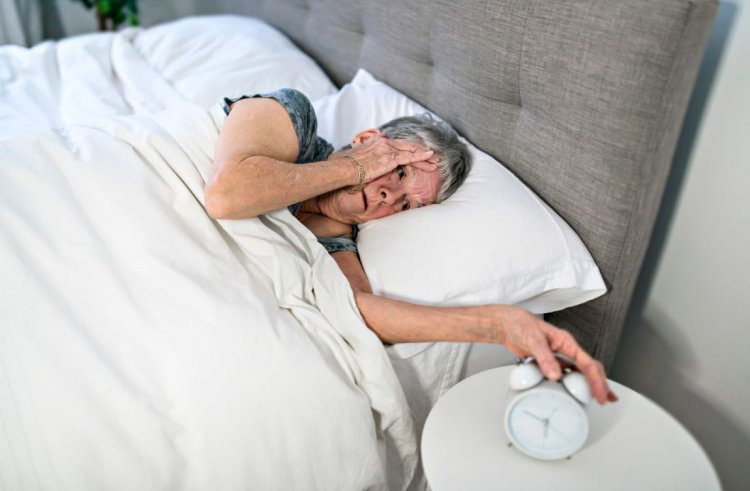Intriguing facts about sleep
Intriguing facts about sleep
Updated on July 22, 2022 16:01 PM by Laura Mendes

Although most of what we now know about sleep was uncovered in the past 25 years, it's safe to say that we have more than made up for it. Every day, scientists and researchers from around the world are discovering new facts about sleep that we had never even imagined (excuse the pun). 22 of the most fascinating and unexpected facts about sleep that you might not know have been compiled by us.
1. Twelve percent of people only have black-and-white dreams
Only 15% of individuals dreamed of color before the advent of color television. Dreams in black and white are more prevalent in older persons than in younger people.
2. A cat sleeps for two-thirds of its life
Most cat owners won't be surprised by this. To them, every sofa is a sofa bed, alternatively, on your computer's keyboard or favorite chair.
3. A brown bat requires 19.9 hours per day of sleep, compared to a giraffe's 1.9 hours per day.
4. Sleeping accounts for one-third of human existence
This varies depending on the human's age, but on average, it's approximately a third, which is a significant amount when you consider it.
5. Eleven days hold the record for the longest time without sleep
Randy Gardner, a student from California, set this in 1964. However, this is not advised considering Randy's significant sleep deprivation and the fact that others have passed away from excessive vigilance.
6. Deaf persons frequently utilize sign language while they sleep
Many people have reported hearing their deaf partners or children signing while asleep.
7. Dysania is the condition in which rising from bed in the morning is difficult
Getting out of bed can be challenging for anyone, but people with dystonia find it incredibly challenging. Most likely, a sort of chronic fatigue syndrome is to a fault.

8. Unnatural movements while you sleep are referred to as parasomnia. Some people have even committed crimes due to parasomnia, including sleep-driving and murder.
9. 'Hypnic jerks' refers to the sensation of pulling yourself awake when half asleep
Although the exact cause of hypnic jerks is unknown, they are thought to be completely normal. They occur more frequently in young people and less regularly as we age. However, stress, caffeine, or physical activity before bedtime may worsen them.
10. Up to 15% of people may be considered to be sleepwalkers
The National Sleep Foundation claims this. The idea that you shouldn't wake someone who is sleepwalking is also a fallacy.
11. One in four married couples opt to sleep apart
12. Lack of sleep kills you more swiftly than a lack of food
Both are harmful to you, but this article argues that rest is more significant in the short term than eating.
13. Those who are blind from a birth dream about things like emotion, sound, and smell instead of seeing them
This is a highly fascinating subject, and a person's dreams may change depending on when they go blind in life. You can read a lot more about this here.
14. Five minutes after you wake up, 50% of your dream is forgotten
An additional five minutes pass and 90% of memory are lost. According to Sigmund Freud, this is because dreams represent our suppressed ideas, which our brain wishes to get rid of as soon as possible. However, it's much more likely that this happens because, as soon as we're awake, our brains are put to much greater work, and as a result, we forget much of what we dreamed about.
Add Block

15. Lack of sleep lowers one's ability to tolerate pain
Although it's not quite apparent, this study implies that drastically reducing sleep affects a person's pain threshold.
16. The fetal position is the preferred sleeping posture for 41% of British people
Professor Chris Idzikowski, director of the Sleep Assessment and Advisory Service, researched the discovery of five other sleeping positions: the log, yearner, starfish, soldier, and freefall.
17. Sleep specialists have found a connection between people's personalities and preferred sleeping positions
Professor Idzikowski further asserts that those who sleep in the fetal position "may appear tough but are truly sensitive souls deep to their core," despite their outward appearance of toughness.
18. It should take you no more than 10 to 15 minutes to fall asleep at night
You probably need sleep if it takes you less than five minutes.
19. Only humans and certain other mammals willfully put off going to bed
What a luxury to be able to fall asleep whenever and wherever you like!
20. Stomach health benefits of sleeping on your front
While lying on your left side, your hands should be raised above the cushion to create a "freefall" position, which is said to help with heartburn.
21. High earners sleep the best (between £65 and £75,000)
The Sleep Council published a report on this topic. If I made that much money, I'd sleep a lot better! Fear is allegedly not the primary feeling experienced during dreams. Researchers have shown that the predominant emotions are despair, guilt, and confusion.





